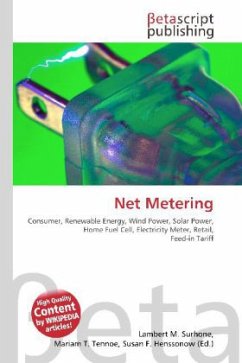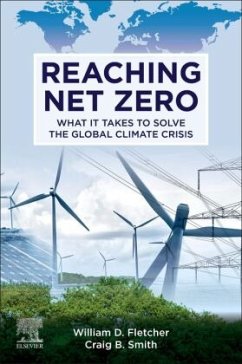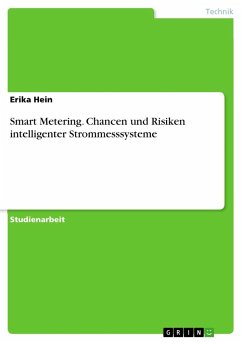
Net Metering
Versandkostenfrei!
Versandfertig in 6-10 Tagen
26,99 €
inkl. MwSt.

PAYBACK Punkte
13 °P sammeln!
Please note that the content of this book primarily consists of articles available from Wikipedia or other free sources online. Net metering is an electricity policy for consumers who own (generally small) renewable energy facilities, such as wind, solar power or home fuel cells. "Net", in this context, is used in the sense of meaning "what remains after deductions" in this case, the deduction of any energy outflows from metered energy inflows. Under net metering, a system owner receives retail credit for at least a portion of the electricity they generate. Most electricity meters accurately r...
Please note that the content of this book primarily consists of articles available from Wikipedia or other free sources online. Net metering is an electricity policy for consumers who own (generally small) renewable energy facilities, such as wind, solar power or home fuel cells. "Net", in this context, is used in the sense of meaning "what remains after deductions" in this case, the deduction of any energy outflows from metered energy inflows. Under net metering, a system owner receives retail credit for at least a portion of the electricity they generate. Most electricity meters accurately record in both directions, allowing a no-cost method of effectively banking excess electricity production for future credit. However, the rules vary significantly by country and possibly state/province; if net metering is available, if and how long you can keep your banked credits, and how much the credits are worth (retail/wholesale). Most net metering laws involve monthly roll over of kWh credits, a small monthly connection fee, require monthly payment of deficits (i.e. normal electric bill), and annual settlement of any residual credit.












